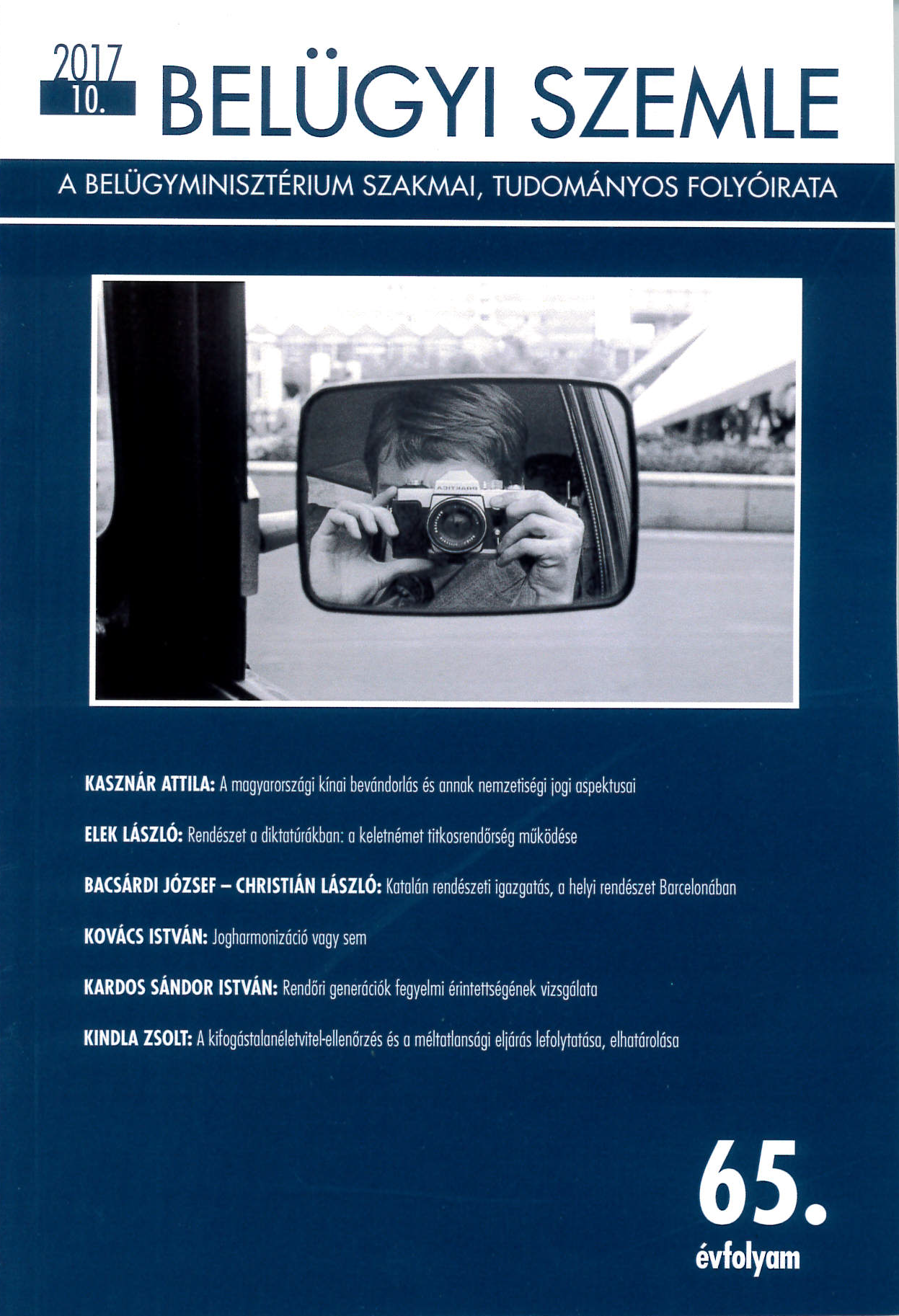Keywords
forensic examiner
human factors
fingerprint identification
human factors
fingerprint identification
How to Cite
The role of cognitive and human factors in forensic expert opinions. (2017). Academic Journal of Internal Affairs, 65(10), 89-103. https://doi.org/10.38146/BSZ.2017.10.7
Abstract
The authors provide an overview ofhow cognitive biases may affect forensic examiners, in particular in using Automated Fingerprint Identification Systems.
Downloads
Download data is not yet available.
Similar Articles
- Csaba Erdélyi , Gergely Hlavacska , Róbert Lajos Bogotyán , Tamás Drusza , Katalin Erdélyi , International Law Enforcement Observer X. , Academic Journal of Internal Affairs: Vol. 71 No. 6 (2023)
- Upal Aditya Oikya, Incorporation of Human Rights in International Relations , Academic Journal of Internal Affairs: Vol. 69 No. 4. ksz. (2021): Különszám
- Gábor Kovács, Péter Gergely, Sándor Kosztya , Zsolt Kozma, Gábor Simon , György Szabados, Réka Anita Tóth, Klára Törő , Roland Weiczner , Recommendation. Key aspects of medical expert’s opinion (report) on the crime of driving under the influence of drugs (DRUID) , Academic Journal of Internal Affairs: Vol. 71 No. 7 (2023)
- Sándor Füredi, Types of human trace evidences and the importance of their forensic genetic analysis in Hungarian criminal and administrative proceedings – Case reports , Academic Journal of Internal Affairs: Vol. 71 No. 12 (2023)
- Mónika Nogel, Guilty or Innocent? Relevance of Forensic Genetic Expert Opinions for the Defense , Academic Journal of Internal Affairs: Vol. 70 No. 3 (2022)
- Gyula Sófi, Krisztina Törő , Gábor Csikós , Difficulties of forensic psychological and psychiatric expertise on sexual coercion against children in prosecution , Academic Journal of Internal Affairs: Vol. 71 No. 7 (2023)
- Mónika Nogel, Contracting Forensic DNA Experts by the Defense in Hungarian Criminal Procedure , Academic Journal of Internal Affairs: Vol. 69 No. 6. ksz. (2021): Különszám
- Ivett Nagy, Examining certain changes to the current Code of Criminal Procedure in the light of the fight against organized crime , Academic Journal of Internal Affairs: Vol. 71 No. 4 (2023)
- Judit Hegedűs, Levente Tóth, Key Factors of Efficient Operator Activities , Academic Journal of Internal Affairs: Vol. 72 No. 11 (2024)
- Johanna Farkas, Forensic child psychology , Academic Journal of Internal Affairs: Vol. 68 No. 5 (2020)
You may also start an advanced similarity search for this article.
Most read articles by the same author(s)
- Gábor Kovács, Main directions of further development of the Faculty of Law Enforcement , Academic Journal of Internal Affairs: Vol. 70 No. 10 (2022)
- Gábor Kovács, Presenting the development results of the NUPS Faculty of Law - by publishing special thematic issue , Academic Journal of Internal Affairs: Vol. 70 No. 11 (2022)
- Gábor Kovács, The debts of forensic science on the threshold of a paradigm shift , Academic Journal of Internal Affairs: Vol. 70 No. 11 (2022)
- András Czebe, Facing the unknown perpetrator – part I. An overview of the results and limits of forensic DNA phenotyping [Withdrawn by the author.] , Academic Journal of Internal Affairs: Vol. 69 No. 6 (2021)
- Gábor Kovács, The joint public service seminar as a practical training module , Academic Journal of Internal Affairs: Vol. 66 No. 11 (2018)
- András Czebe, Facing the unknown perpetrator – part 2. First steps towards the legislation and practical application of forensic DNA phenotyping [Withdrawn by the author] , Academic Journal of Internal Affairs: Vol. 69 No. 7 (2021)

